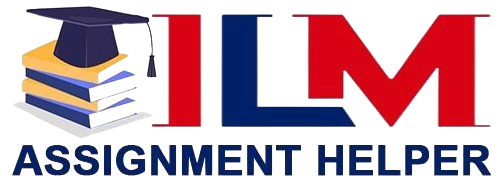Stress-Free ILM Level 5 8316-530 Assignment Help in 3 Quick Steps
Achieve stress-free ILM Level 5 8316-530 assignment help with our simple 3-step process!

Fill out the order form to hire our leading ILM Level 5 8316-530 assignment writers and include all the important documents.

Make a payment using PayPal, credit/debit card, or online banking services after you have received your quote.

You can download your completed ILM Level 5 8316-530 assignment from your respective mail ID.
Meet the Professionals Who Write Your ILM Level 5 8316-530 Assignments
- Expertise in ILM Level 5
- PhD/Master’s degree holders
- At least 18 years of writing experience
Features of Our ILM Level 5 8316-530 Assignment Help in the UK
Expert Writers with ILM Knowledge
Our team of native UK writers consists of experienced professionals with a deep understanding of ILM Level 5 coaching and mentoring principles. They are well-versed in the course content and can provide high-quality, tailored assignments.
Plagiarism-Free Content
We guarantee 100% original, plagiarism-free content for every assignment. Each paper is thoroughly checked using advanced plagiarism detection tools, ensuring the authenticity of your work.
AI-Free Writing
All of our tasks are written without AI tools. Our expert writers create individualistic and thoughtful content so that the work is aligned with academic standards and specific requirements of the ILM Level 5 course.Delivery on Time
Delivery on Time
We know how important it is to submit assignments within due dates. So, we ensure that the ILM Level 5 assignment help that we provide to you will always reach you on time, always, so there is no need for submission of an assignment late.
Get Help with ILM Level 5 8316-530 Understanding How Management Coaching and Mentoring Can Benefit Individuals and Organisations Assignment Examples and Solutions
Are you struggling to complete your ILM Level 5 8316-530 assignment on “Understanding How Management Coaching and Mentoring Can Benefit Individuals and Organisations”? Our team of expert native writers is here to help you with high-quality, urgent assignment work tailored to your specific needs. We understand that this module requires an in-depth understanding of theory and practices in management coaching and mentoring. Our writers are aware of this, ensuring your work is enlightening as well as well-structured.
To assist the learner further, we also offer full editing and proofreading services to ensure that your assignment is error-free and meets all the standard requirements of the university or college. Our team will therefore be meticulous about grammar, spelling, and punctuation errors to leave your work polished and very professional, also providing formatting according to the guidelines issued by the learner’s university, which may require either APA, Harvard, or some other style of citation. That ensures your work is formatted just right and follows the conventions of an academic paper.
Assignment Brief 1: Explain the characteristics of effective coaches and mentors and coaching and mentoring programs.
AC 1.1 Identify the characteristics of effective coaching and mentoring arrangements and plans.
- Clear Goals and Objectives: A good coaching and mentoring relationship must clearly identify the respective goals and objectives commensurate with the requirements of an individual’s self-development or professional development and organisational goals and objectives.
- Structured Framework: A successful coaching or mentoring plan outlines a structured framework with a clear timeline, specific milestones, and measurable outcomes to track progress at regular intervals.
- Mutual Trust and Respect: Both the coach/mentor and the one to be coached/mentored have to enhance mutual trust, respect, and open communication in establishing a supportive learning environment.
- Continuous Feedback and Reflective Process: The process of development requires continuous feedback and opportunities for reflection. This is also necessary to ensure that one receives constructive input to enhance their skills and performance.
- Flexibility: A good coaching or mentoring relationship will adapt to the changing needs and challenges of the mentee or coachee.
- Commitment and Engagement: Both need to be committed fully, with active participation and consistent engagement for the purpose to be fulfilled properly.
- Confidentiality: Maintaining confidentiality matters if a safe and open climate is to be created where an individual can air his/her open challenges without the fear of judgment and enjoy honest feedback.
AC 1.2 Explain the importance of respecting others’ ethical and moral views, beliefs, attitudes and values, challenging inappropriate language or behavior and not abusing own power and authority in a coaching or mentoring relationship.
- Builds Trust and Openness: Respect fosters a safe environment for honest communication, strengthening trust and encouraging the sharing of challenges and goals.
- Strengthens Relationships: Acknowledging different perspectives creates a supportive and positive relationship, enhancing the mentoring process.
- Empowers Individuals: Respect ensures the individual retains autonomy while receiving guidance, boosting their confidence and self-worth.
- Addresses Inappropriate Behavior: Challenging unethical behavior ensures the relationship remains professional and respectful, preventing discomfort or harm.
- Prevents Abuse of Power: Responsible use of authority prevents manipulation, which is important to develop a healthy coaching environment.
AC 1.3 Explain the importance of creating the necessary, safe and confidential conditions for engaging in effective coaching or mentoring and of agreeing the expectations, processes and boundaries of a coaching or mentoring program with all stakeholders.
- Develops Trust and Closeness: The reason for creating a safe and confidential setting is basically to create trust. When individuals are assured that their words will never be disclosed, they end up being open to freely discussing, their problems issues, and vulnerabilities, which opens up to more successful coaching or mentoring.
- Fosters Honesty in Communication: Confidentiality promotes safety, and by this, candidness may be attained. Candidness is needed for discussing sensitive matters and giving constructive guidance.
- Outlines Roles and Boundaries: Clear roles, processes, and boundaries prevent both the coach/mentor and the individual from misconstruing their role, the objectives of the program, or the limitations. This prevents both from being lost in initiatives toward goals and outcomes.
- Cultivates Accountability: The mutual expectations also help in holding each other accountable to the agreed-upon objectives and the processes involved, making the coaching or mentoring relationship more effective.
- Protects Ethical Considerations: Clear boundaries and confidentiality protect the ethical integrity of the coaching or mentoring process. It makes sure that the relationship is professional, respectful, and focused on the development of the individual.
AC 1.4 Explain why coaches and mentors should develop effective communication skills and be able to analyze communication to identify meaning.
- Facilitates Clear Understanding: Good communication ensures that both the coach/mentor and the individual are on the same page. Avoidance of misunderstandings, misinterpretations, and confusion ensures a more productive coaching or mentoring process.
- Builds Trust and Rapport: Strong communication helps create an atmosphere where the individual entrusts him/herself to the coach/mentor. Active listening, empathy, and clear expression help foster a positive atmosphere that’s supportive of growth and development.
- Encourages Open Dialogue: It helps coaches and mentors respond to verbal and non-verbal cues accordingly and hence attend to their concerns and provide suitable feedback.
- Improves Problem-Solving: Effective communicators can easily assess what is communicated and understand the root issues. Such ability helps coaches and mentors find more profound causes of the problem and provide solutions aligned with the needs of the individual.
- Meets Varying Styles of Communication: Coaches and mentors often work with individuals who are different in thought, belonging, or communication style. Developing effective communication skills allows them to adapt to such differences and connect with individuals in a manner with which they resonate.
Assignment Task 2: Present a business case for using coaching or mentoring in own organisation.
AC 2.1 Assess the contribution that management coaching or mentoring can make to individuals and the organisation and its role in relation to alternative developmental and support strategies.
- Facilitating Personal Development: Management coaching or mentoring fosters individual learning by equipping individuals with specific skills, knowledge, and competencies. It facilitates customized guidance, enabling the individual to set and attain personal and professional objectives, thus building confidence and performance levels.
- Improving organisational Performance: Coaching and mentoring benefit organisations by producing skilled, motivated employees who are better equipped to align their work with the goals of the organisation. In turn, this means an increase in overall performance, productivity, and employee retention.
- Building Leadership Capabilities: Effective management coaching or mentoring will facilitate the development of future leaders in the organisation. To that extent, it prepares them for significant responsibilities and aids in developing a continuous improvement culture.
- Complementing Other Developmental Strategies: Coaching and mentoring therefore prove to be a very personalized approach to complement formal training programs, workshops, and other developmental strategies. Traditional training may provide generalized knowledge, whereas coaching ensures focused attention on specific challenges and goals.
- Support organisational Culture and Values: Through coaching or mentoring, the organisational culture, values, and mission will be reinforced by seeing to it that leaders exemplify such behaviour and then pass it on to their team. It helps build a more harmonious work environment where the employees are supported.
AC 2.2 Identify potential organisational barriers to using coaching or mentoring and develop appropriate strategies for overcoming them.
- Limited Time and Funds- Strategy: Coaches then can be incorporated into an employee’s everyday routine as short, highly focused sessions. Offer virtual options.
- Lack of Leadership Buy-in- Strategy: Educate leaders on the value of coaching and mentoring by using proof to show the impact.
- Cultural Resistance- Strategy: Coaching becomes a personal growth tool through internal communication and success stories.
- Not Enough Skilled Coaches or Mentors- Strategy: Coach training for managers or bringing in external coaches.
- Lack of Proper Structure for Programs- Strategy: Produce a formal framework whereby clear rules, objectives, and regular evaluation are attained.
- Confidentiality Issues- Strategy: Establish confidentiality and announce that the program intends to promote growth and development.
- Lack of Stated Objectives- Strategy: Develop clear but measurable objectives with regular tracking of progress.
AC 2.3 Present a business case for using coaching or mentoring to address specific developmental and support needs in the organisation.
- Introducing the Problem
- The company is suffering from low employee engagement, improper leadership development, and a lack of skills in certain teams.
- The proposed solution is to engage a coaching and mentoring program to fulfill developmental needs for better performance.
- Objectives of the Coaching/Mentoring Program
- Personal Development: To help employees reach their career aspirations and build particular competencies.
- Leadership development: Develop future leaders with potential for broader roles within the organisation.
- Employee Retention: Improved job satisfaction and decrease in turnover rates due to the avenues for growth provided for employees.
- Benefits of Coaching or Mentoring
- Growth in Performance: One-on-one support given to employees to overcome problems that eventually evoke higher productivity and effectiveness.
- Increased Employees Engagement: Positive feelings about one’s job, motivation, and commitment to the organisation.
- Alignment to the organisation’s Culture: Coaching and mentoring reinforce the values and strategic objectives of the organisation.
- Succession Planning: Develop an internal talent pipeline that is ready for leadership roles, reducing dependence on externally recruited talent.
- ROI
- Increased Productivity: Mentoring enhances skill development leading to improved performance and efficiency.
- Cost Savings: Internal promotions with retention reduce recruitment costs.
- Better Organisational Culture: Positive coaching relationships foster trust and collaboration towards a supportive work environment.
- Implementation Plan
- Target Population: Focus on high-performing employees, new leaders, and teams having specific needs.
- Coaching/Mentoring Model: Pair senior leaders with mentees for one-on-one guidance while setting specific objectives and milestones.
- Monitoring & Evaluation: Track the progress through regular feedback and assessments conducted to ensure that the program is on track and fulfilling the aims
- Conclusion: Structuring any coaching or mentoring would address the developmental needs of the organisation, enhance engagement through its employees, and contribute to long-term success.
AC 2.4 Suggest how the effectiveness of the proposed coaching or mentoring program can be evaluated.
- Participant Feedback: Surveys or interviews of both mentors and mentees in regard to job satisfaction levels as well as perceived value.
- Goal Achieved: Monitor progress on identified goals before the program commencement.
- Performance Indicators: Changes in performance, such as an increase in productivity or leadership skills, after participating in the program.
- Employee Retention: Compare the retention rates of participants with those who did not participate in order to determine the contribution to job satisfaction.
- Organisational Impact: Improvement in Team Collaboration and Alignment to organizational objectives.
- Behavioural Changes: Change in Communication, Leadership and Problem-Solving Skills
- 360-Degree Feedback: Input from Peers, Supervisor, and Direct Reports to Assess Growth in Different Areas
Completion Rates: Program Completion and Dropout Rates as Measures of Engagement and Value.
Our Clients' Experience with Our Assignment Help Services
Explore our clients' experiences with our assignment help services, showcasing how we consistently deliver quality results and academic success.
A
Alex Turner

ILM Assignment Helper played a key role in my success with ILM Level 3 assignments. Their team offered exceptional insights, guidance, and support. They ensured I understood the core concepts and applied them in my coursework, resulting in fantastic grades and a more solid grasp of leadership principles.
M
Michael Thompson

ILM Assignment Helper delivered high-quality work for my ILM Level 7 assignments. Their expert writers incorporated advanced research and real-world examples that directly aligned with my academic needs. With their support, I achieved excellent grades and was able to apply the knowledge practically in my career.
E
Emma Green

I couldn’t have asked for better help with my ILM Level 3 assignments. ILM Assignment Helper’s team provided clear, concise, and well-researched content that directly addressed the challenges in my coursework. With their help, I improved my grades significantly and gained a clearer understanding of leadership principles.
D
Daniel Hughes

I was having difficulty understanding some of the more complex management theories in my ILM Level 5 course. The team at ILM Assignment Helper provided tailored support that helped me break down these concepts into easily digestible pieces. Their research and writing assistance improved my work quality and led to top grades in my assignments.
C
Charlotte Roberts

ILM Assignment Helper was a lifesaver during my ILM Level 7 course. Their expert writers not only provided high-quality, well-researched content but also made sure the assignments aligned perfectly with the requirements of my curriculum. Thanks to their assistance, I passed with distinction and gained insights that will benefit me in my career.
J
James Carter

I was struggling to understand the practical application of leadership theories in my ILM Level 3 assignments, but ILM Assignment Helper made everything clear. The team’s input was invaluable, helping me complete my work with a deep understanding of how these theories apply to real-life situations. I received excellent grades thanks to their support.
Need Quick Help with Your ILM Level 5 8316-530 Assignment?
Our UK-based specialists are ready for you. Get started with us now!

Get assignment help with every unit of ILM level 6 in UK
- 8316-507 Becoming an Effective Leader
- 8316-530 Understanding How Management Coaching and Mentoring Can Benefit Individuals and Organisations
- 8316-602 Developing the Executive Manager
- 8316-603 Optimising Organisational Capacity
- 8316-604 Critical Thinking and Research Skills in Management
- 8316-605 Reviewing Corporate Policy and Strategy
- 8316-607 Developing Excellence in Operations
- 8316-608 Managing Operations Research
- 8316-609 Leading Project Implementation
- 8316-610 Building Commitment to Corporate Vision and Values
- 8316-700 Team Working in Organisational Partnerships






